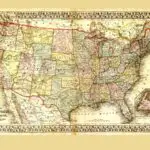A common question for California drivers is how long their smog certificate is valid. In California, a smog certificate is required when registering or renewing the registration for a vehicle. The certification verifies that the vehicle meets the state’s emissions standards. The certificate’s validity depends on several factors, including the type of vehicle and the location of the smog check.
A smog certificate is not required for registration or renewal for gasoline-powered vehicles that are model year 1975 or older, motorcycles, and trailers. For all other cars, the certificate is typically valid for 90 days. However, if the vehicle fails the smog check, the owner has 30 days to complete the necessary repairs and obtain a new certificate. Additionally, if the car is sold, the certificate is only valid for 90 days from the inspection date.
It’s important to note that the validity of the smog certificate may vary depending on the location of the smog check. Some areas of California have more stringent emissions standards, and the certificate may only be valid for 60 days. It’s always best to check with the California DMV or a licensed smog check station for specific information on the validity of a smog certificate.
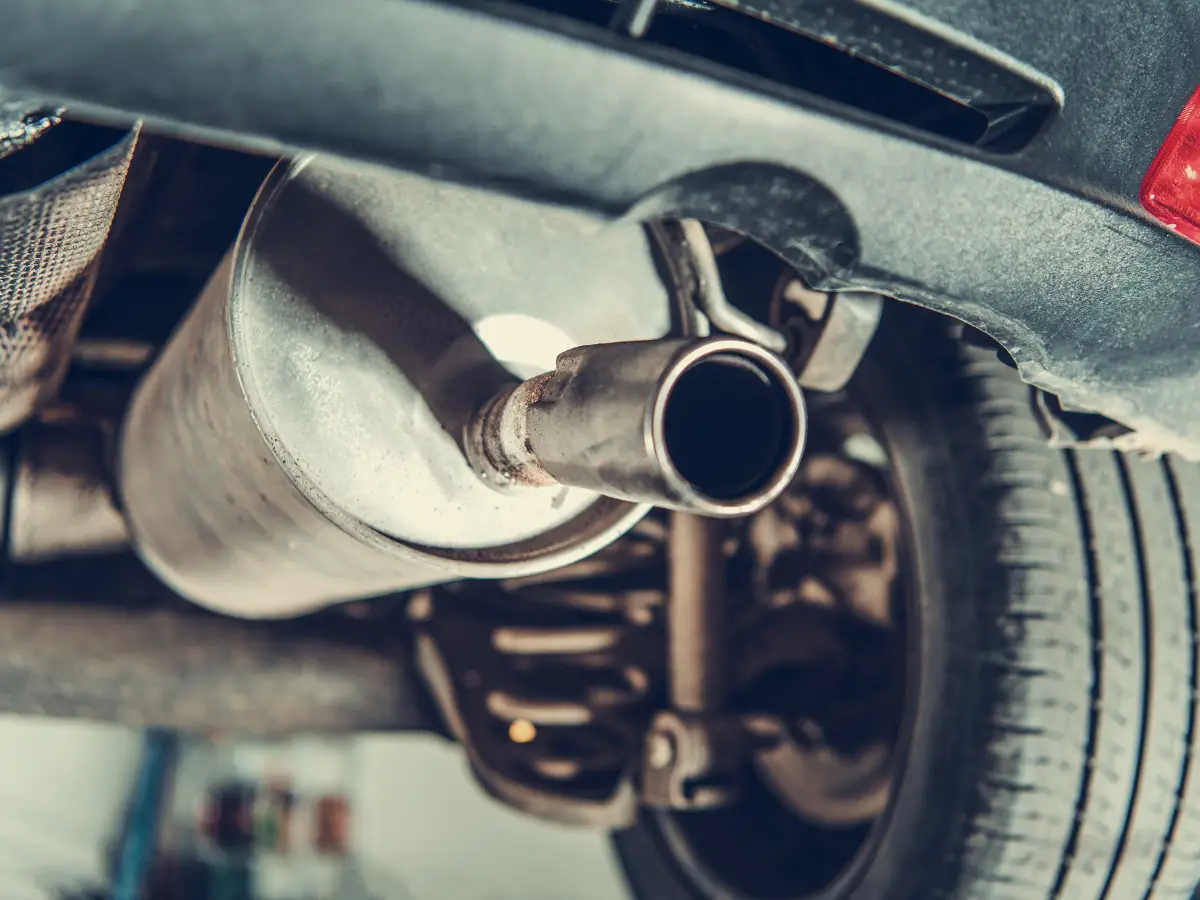
Understanding California Smog Certificate
If you own a vehicle in California, you are probably familiar with the term “smog certificate.” This certificate is an essential document to legally drive on California roads.
A smog certificate is issued after a smog inspection on your vehicle. During the inspection, a licensed smog technician will check your vehicle’s emission levels to ensure they meet California’s strict air quality standards.
The validity of a smog certificate is 90 days from the date of issuance. If you plan to register or renew your vehicle’s registration, you need a valid smog certificate.
It is important to note that not all smog check stations can issue a smog certificate. Only stations licensed by the Bureau of Automotive Repair (BAR) and part of the STAR program can issue smog certificates.
If your vehicle fails the smog inspection, you will receive a “Notice of Failure.” You must then have your car repaired and retested at a licensed smog check station. If your vehicle passes the retest, you will receive a smog certificate.
In conclusion, a smog certificate is a crucial document to drive legally in California. It is valid for 90 days from the date of issuance and can only be issued by licensed smog check stations that are part of the STAR program.
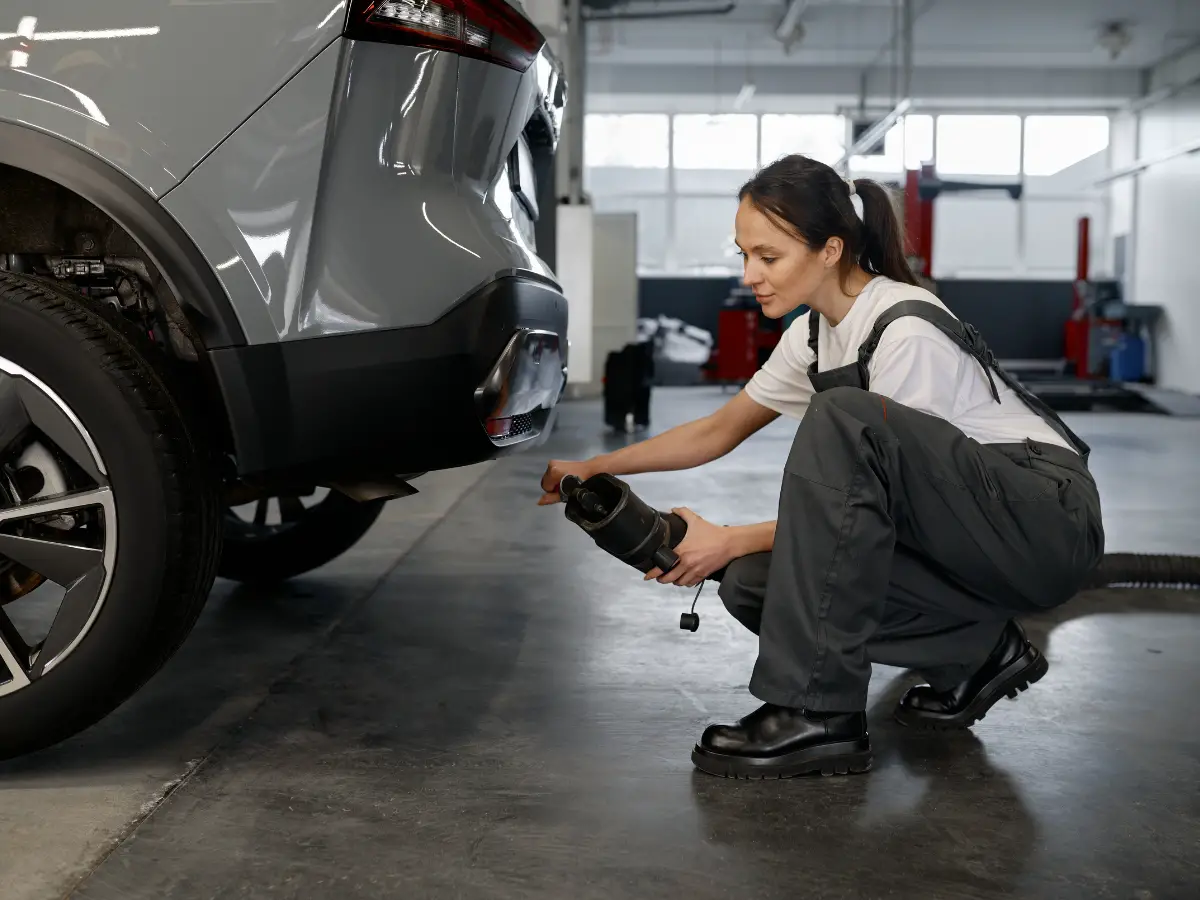
Vehicle Registration and Renewal Process
When registering or renewing registration for a vehicle in California, a smog inspection is required, except for certain exceptions. Gasoline-powered vehicles that are 1975 year model or older, including motorcycles and trailers, do not require a smog inspection.
The Department of Motor Vehicles (DMV) registration renewal notice will indicate if a Smog Check is required. A Smog Check is required every other year (biennially) as part of the vehicle registration process. If a vehicle changes ownership or is registered for the first time in California, a smog inspection is also required.
Vehicle registration fees can be paid online, but registration is not complete if the vehicle requires a smog certificate or proof of insurance. If a valid smog certificate is not on record when generating the renewal notice, the DMV will not check it. The validity of the smog certificate only comes into play at the time of registration renewal payment. A California smog certificate is only valid for 90 days from its issuance.
New residents of California are required to bring their vehicles to a smog inspection station for a smog check before registering their vehicles, which must be completed within 20 days of establishing residency.
It is important to note that the smog certificate is not the same as the registration sticker. The smog certificate is a document that verifies that the vehicle has passed the smog inspection, while the registration sticker is a small sticker that is placed on the vehicle’s license plate to indicate that the vehicle is registered and has passed the smog inspection.
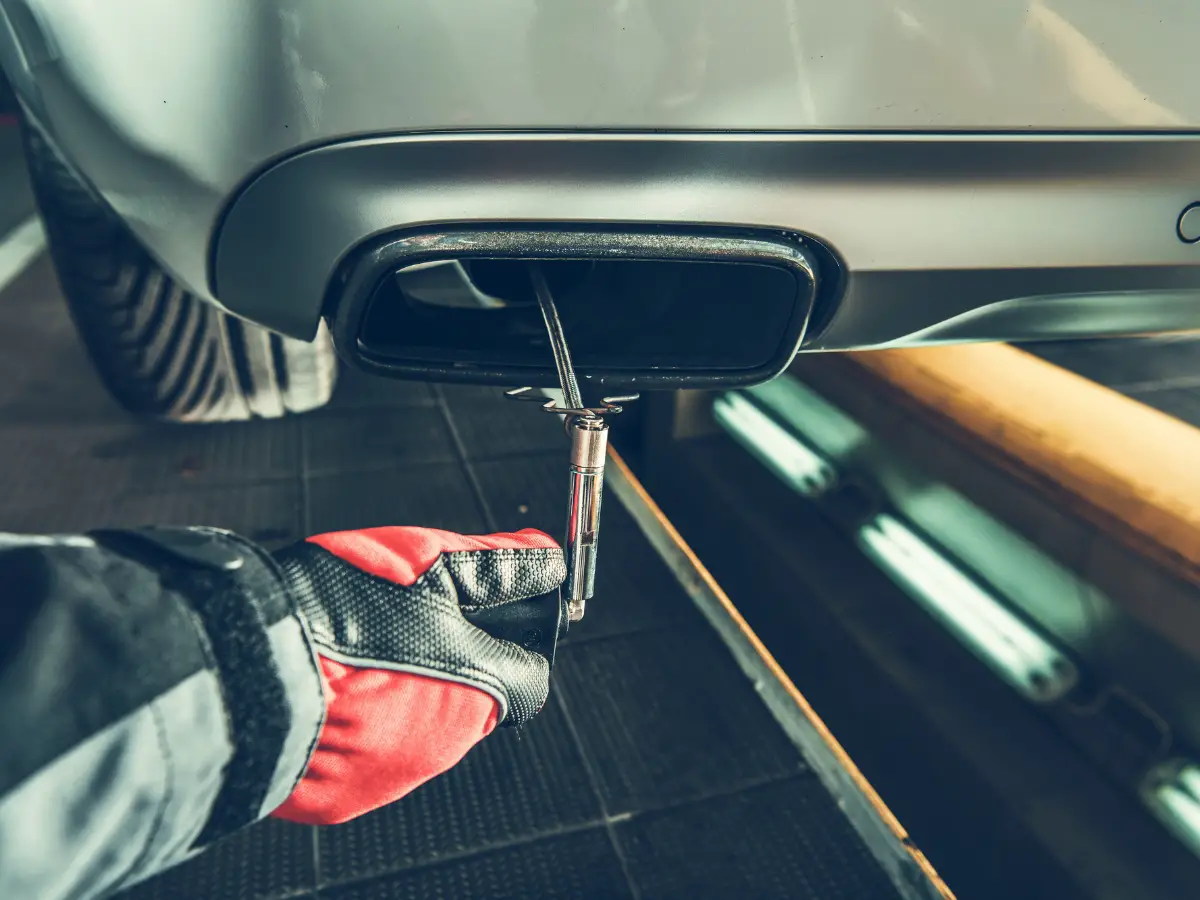
Smog Inspection for Different Vehicles
In California, all vehicles are required to undergo a smog inspection, except for those that are exempted. The frequency of smog inspections varies depending on the type of vehicle, its model year, and fuel type.
Gasoline-Powered Vehicles
For gasoline-powered vehicles, a smog inspection is required every two years, except for those that are six years old or newer. These newer vehicles are exempted from smog inspections until they reach their seventh year. Once they reach their seventh year, they are required to undergo a biennial smog inspection.
Diesel-Powered Vehicles
Diesel-powered vehicles are subject to different smog inspection requirements. For diesel-powered vehicles that are model year 1998 or newer, a smog inspection is required every two years. For diesel-powered vehicles that are model year 1997 or older, a smog inspection is required every year.
Natural Gas Vehicles
For natural gas vehicles, a smog inspection is required every two years, except for those that are four years old or newer. Similar to gasoline-powered vehicles, these newer vehicles are exempted from smog inspections until they reach their fifth year.
Motorcycles
Motorcycles are also subject to smog inspection requirements. For motorcycles that are model year 2000 or newer, a smog inspection is required every two years. For motorcycles that are model year 1999 or older, a smog inspection is not required.
Electric Vehicles
Electric vehicles are exempted from smog inspections in California.
It is important to note that these smog inspection requirements may vary depending on the county in which the vehicle is registered. It is best to check with the local DMV office for specific smog inspection requirements in your area.
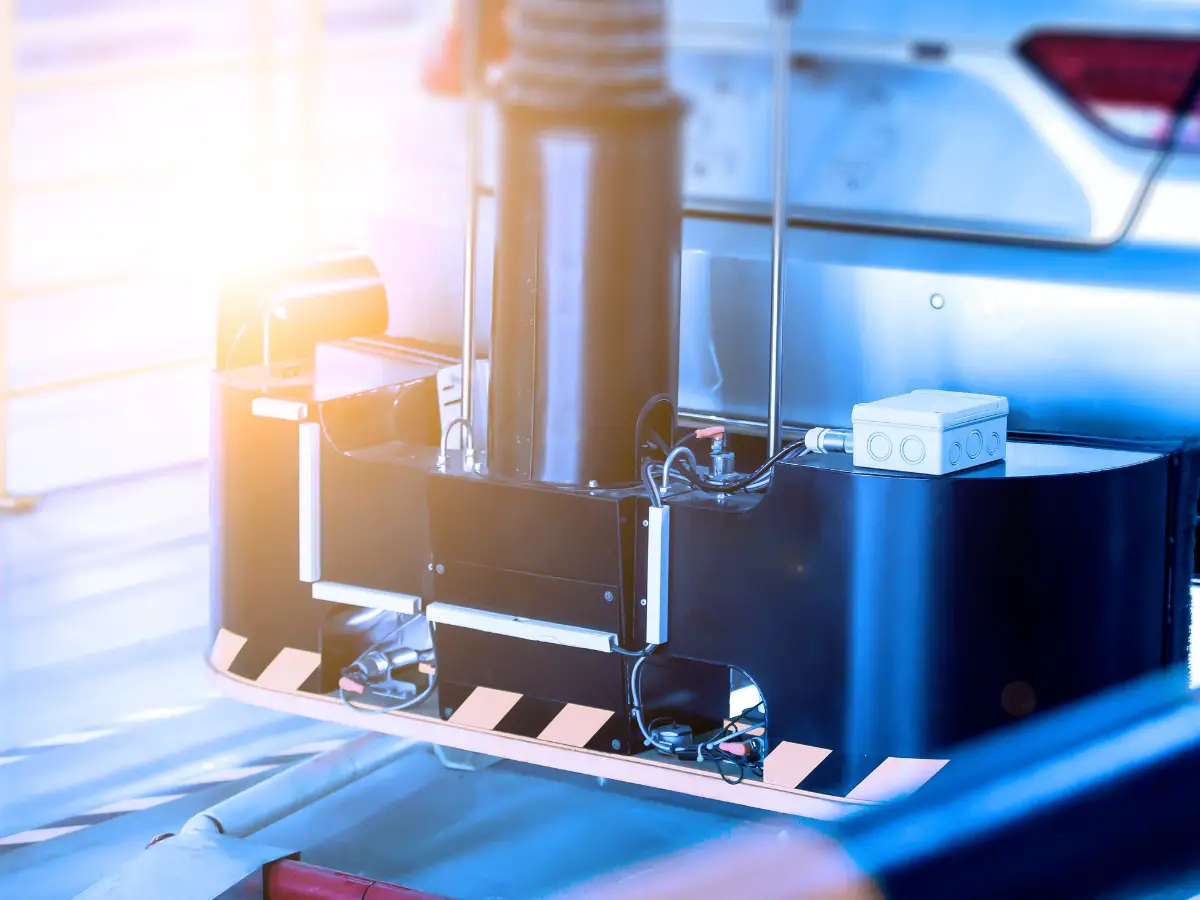
Costs Involved in Smog Check
Getting a smog check in California involves a few costs. The fees charged for a smog check vary depending on the type of vehicle and the location of the smog check station. The Bureau of Automotive Repair (BAR) sets the maximum fees that smog check stations can charge.
The fees involved in a smog check include the following:
- Smog Check Fee: This is the fee charged by the smog check station for conducting the smog check. The maximum fee for a smog check is $50. However, some smog check stations may charge less than the maximum fee.
- Smog Abatement Fee: This fee is assessed on vehicles once they pass their smog check. The fee is $20 for most vehicles, but it can be higher for certain types of vehicles. The fee is paid to the Department of Motor Vehicles (DMV) and is used to fund smog reduction and air quality improvement programs in California.
- Smog Transfer Fee: This fee is charged by the DMV when a vehicle is sold or transferred to a new owner. The fee is $8.25 and is paid by the new owner of the vehicle.
- Certification Fee: This fee is assessed on vehicles once they pass their smog check. The fee is $8.25 and is paid to the smog check station that issues the smog certificate. The fee funds BAR’s administration of the Smog Check Program and consumer protection operations relating to the automotive repair and smog check industry.
It is important to note that the fees mentioned above are the maximum fees that can be charged. Smog check stations may charge less than the maximum fees. It is also a good idea to shop around for smog check stations that offer competitive prices.
In conclusion, the costs involved in a smog check in California include the smog check fee, smog abatement fee, smog transfer fee, and certification fee. The fees vary depending on the type of vehicle and the location of the smog check station. It is important to be aware of these fees and shop around for competitive prices.
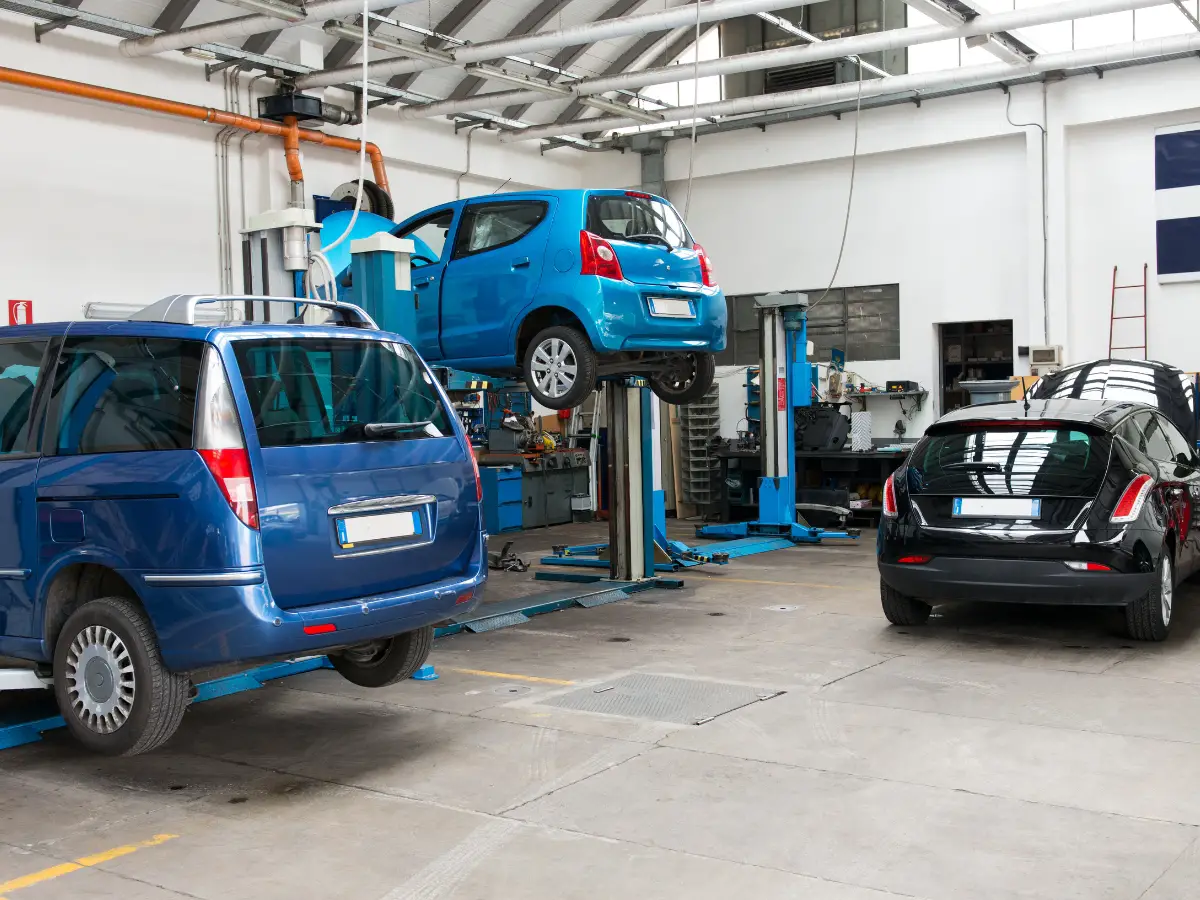
Smog Check Program in California
If you own a vehicle in California, you are required to have a Smog Check done every two years. This program is designed to reduce air pollution and keep the air clean for everyone to breathe. The California Smog Check Program is administered by the Bureau of Automotive Repair (BAR).
Smog Check stations are licensed by BAR to perform these inspections. When you take your vehicle to a Smog Check station, you will be given a certificate if your vehicle passes the inspection. This certificate is required to register your vehicle with the DMV. If your vehicle fails the inspection, you will need to have it repaired and retested until it passes.
The Smog Check certificate is valid for 90 days from the date of issuance. If you do not register your vehicle within this time frame, you will need to have another Smog Check done. The cost of the Smog Check varies depending on the location and type of vehicle.
If you need assistance with repairs or retirement of your vehicle, you can check out the Consumer Assistance Program offered by BAR. This program offers repair assistance and vehicle retirement options for eligible consumers.
If you are a Smog Check station owner, you may be interested in the STAR Program. This program offers voluntary certification of Smog Check test-and-repair and test-only stations that must adhere to high inspection-based standards.
Overall, the California Smog Check Program is an important program that helps keep the air clean. Make sure to have your vehicle inspected every two years and keep your Smog Check certificate valid for 90 days to avoid any issues with registration.
Inspection Reports and Certificates
When a vehicle undergoes a smog inspection in California, the station will provide the owner with a Vehicle Inspection Report (VIR). This report shows the results of the inspection and whether the vehicle passed or failed. If the vehicle passes, the station will electronically send the smog certificate to the DMV, and the owner will receive a copy of the certificate in the mail within 90 days.
It is essential for vehicle owners to keep a copy of the VIR and the smog certificate in their records. These documents are proof that the vehicle has passed the smog inspection and has met the state’s emissions standards. The smog certificate is valid for 90 days from the date of the inspection, and it is required when registering or renewing registration for a vehicle in California.
If a vehicle fails a smog inspection, the owner will receive a VIR that indicates the areas where the vehicle did not meet the emissions standards. The owner must then take the necessary steps to repair the vehicle and bring it back for a retest. If the vehicle passes the retest, the station will provide the owner with a new smog certificate, which is valid for 90 days from the date of the retest.
It is important to note that not all vehicles in California are required to undergo a smog inspection. Vehicles that are six years old or newer are exempt from smog inspections, as well as electric and natural gas-powered vehicles. Additionally, some counties in California do not require smog inspections at all. Vehicle owners should check with their local DMV office to determine whether their vehicle is exempt from smog inspections.
In summary, when a vehicle undergoes a smog inspection in California, the station will provide the owner with a Vehicle Inspection Report (VIR) and a smog certificate if the vehicle passes. The smog certificate is valid for 90 days from the date of the inspection and is required when registering or renewing registration for a vehicle in California. If the vehicle fails the inspection, the owner must take the necessary steps to repair the vehicle and bring it back for a retest.
Understanding Repairs and Assistance
If your vehicle fails a smog check, it may need repairs to bring it up to California’s emissions standards. The Bureau of Automotive Repair (BAR) offers assistance to eligible consumers through the Consumer Assistance Program (CAP), which can help with the cost of emissions-related repairs.
Owners of model year 1996 or newer vehicles may receive up to $1,200 in emissions-related repairs through CAP. This financial assistance is available to income-eligible consumers whose vehicles fail a biennial smog check inspection at a STAR test-and-repair station.
It’s important to note that CAP repairs must be performed at a STAR test-and-repair station, and only emissions-related repairs are covered. If your vehicle needs additional repairs beyond what CAP covers, you will need to pay for those repairs yourself.
If you’re unsure whether your vehicle needs repairs, you can take advantage of the free smog diagnosis and repairs offered through CAP. This program can provide up to $1,200 in financial assistance for emissions-related repairs, and can help ensure that your vehicle passes its smog check inspection.
In addition to CAP, there are other programs available to help with the cost of smog check repairs. For example, the State of California Bureau of Automotive Repair offers a program that can provide up to $1,000 in financial assistance for emissions-related repairs. This program is available to low-income consumers whose vehicles fail a smog check inspection.
Overall, if your vehicle fails a smog check inspection, it’s important to take action to bring it up to California’s emissions standards. With assistance from CAP and other programs, you can get the repairs you need to ensure that your vehicle is running cleanly and efficiently.
Vehicle Emissions and Pollution Control
Vehicle emissions and pollution control are critical issues in California. The state has been at the forefront of pollution controls for over 50 years, and the California Air Resources Board (CARB) is responsible for implementing and enforcing vehicle emission standards.
Pollutants from vehicles can have serious health and environmental consequences. For example, exhaust emissions from cars and trucks can contribute to smog, which can cause respiratory problems and other health issues. To address this problem, California requires vehicles to undergo regular smog checks to ensure they meet emission standards.
The smog check includes an inspection of the exhaust gas recirculation system, fuel evaporative system, and tailpipe emissions, among other things. The exhaust gas recirculation system reduces the amount of nitrogen oxides (NOx) emitted by the vehicle, while the fuel evaporative system prevents fuel vapors from escaping into the atmosphere. The tailpipe emissions test measures the amount of pollutants emitted by the vehicle.
California requires most vehicles to undergo a smog check every two years. However, some vehicles are exempt from the smog check requirement, such as electric and hybrid vehicles. The smog certificate is valid for 90 days, and it is required to register or renew registration for the vehicle.
In summary, vehicle emissions and pollution control are critical issues in California. The state requires vehicles to undergo regular smog checks to ensure they meet emission standards and reduce the amount of pollutants emitted by vehicles. The smog check includes an inspection of the exhaust gas recirculation system, fuel evaporative system, and tailpipe emissions. The smog certificate is valid for 90 days and is required to register or renew registration for the vehicle.
Consumer Information and Resources
If you are a vehicle owner in California, you are required to have your vehicle undergo a smog check every two years. Once your vehicle passes the smog check, you will receive a smog certificate. But how long is a California smog certificate good for?
A California smog certificate is valid for 90 days from the date of issuance. This means that you must have your vehicle registered within 90 days of receiving the smog certificate. If you do not register your vehicle within the 90-day period, you will need to have another smog check performed and obtain a new smog certificate.
If you are having difficulty passing your smog check, the California Bureau of Automotive Repair (BAR) offers a Consumer Assistance Program (CAP) to help eligible consumers with repair assistance and vehicle retirement options. You can find more information about the CAP on the BAR website.
Additionally, if you have any complaints about a smog check station or technician, you can file a complaint with the BAR. The BAR investigates complaints and takes disciplinary action against stations and technicians who violate smog check laws and regulations.
To find a licensed smog check station near you, you can use the Auto Shop Locator tool on the BAR website. The tool allows you to search for licensed stations by ZIP code, city, or county.
In conclusion, a California smog certificate is valid for 90 days from the date of issuance. If you need assistance with passing your smog check, you can utilize the Consumer Assistance Program offered by the BAR. And if you have any complaints about a smog check station or technician, you can file a complaint with the BAR.
Industry Updates and Training
As of 2023, California Smog Check certificates are valid for 90 days from the date of issuance. However, it is essential to note that the validity period for smog certificates may change, depending on industry updates and regulations. Therefore, it is crucial for Smog Check inspectors and technicians to stay updated on any changes in the industry to avoid any penalties.
To stay abreast of industry updates and regulations, Smog Check inspectors and technicians are required to complete update training every two years as part of the license renewal process. The Bureau of Automotive Repair (BAR) is responsible for approving certified training providers that offer update training to Smog Check inspectors and technicians.
Rise is BAR’s online training service provider that offers four hours of update training for Smog Check inspectors every two years. The training covers topics such as new technologies, diagnostic procedures, and regulations. Additionally, the Smog Check Repair Technician Update Training course is intended to provide licensees with continuing education on automotive technology and related diagnostic and repair practices.
Apart from update training, BAR also offers scholarship opportunities for both students and professionals in the automotive industry. Veterans and military personnel, including their spouses and domestic partners, can also benefit from expedited application assistance.
In conclusion, staying updated on industry news and regulations is crucial for Smog Check inspectors and technicians. Completing update training every two years is not only a requirement but also an opportunity to learn about new technologies and diagnostic procedures. BAR-approved certified training providers such as Rise offer online training services that are easily accessible to Smog Check inspectors and technicians.
Regulations and Licensing
When it comes to smog certificates in California, there are regulations and licensing requirements that must be followed. The Bureau of Automotive Repair (BAR) is responsible for overseeing the smog check program in the state.
Licensees who are authorized to perform smog checks must be licensed by the BAR and are subject to strict regulations. Licensees are required to adhere to the BAR’s laws and regulations, including maintaining accurate records and performing smog checks according to state standards.
To ensure that licensees are in compliance with regulations, the BAR conducts regular inspections and audits. Licensees who are found to be in violation of regulations may face disciplinary action, including license revocation or suspension.
Consumers can search for licensed smog check stations on the BAR’s website. The license search feature allows consumers to verify that a smog check station is licensed and in good standing with the BAR.
In addition to licensing requirements, there are regulations governing the issuance and validity of smog certificates. Smog certificates are valid for 90 days from the date of issuance. If a vehicle fails a smog check, the owner must have the necessary repairs made and obtain a new smog certificate before the 90-day period expires.
Overall, the BAR is committed to ensuring that licensees are in compliance with regulations and that smog checks are performed accurately and according to state standards. Consumers can stay informed about regulatory actions, licensee news, and updates on the BAR’s website.
Online Services and Contact Information
The California Bureau of Automotive Repair (BAR) provides various online services to assist vehicle owners in complying with the state’s smog check requirements. These online services include:
Smog Check Station Search: Vehicle owners can use the Smog Check Station Search tool to locate a licensed smog check station near them. The tool allows users to search by ZIP code, city, or county.
Auto Shop Locator: The Auto Shop Locator tool helps vehicle owners find a licensed repair shop. The tool allows users to search by ZIP code, city, or county.
Consumer Assistance Program: The Consumer Assistance Program (CAP) provides eligible consumers with financial assistance to repair or retire their vehicles. Vehicle owners can use the CAP website to apply for assistance.
Smog Check History: Vehicle owners can view their smog check history online. The smog check history includes the date of the test, the test results, and the station that performed the test.
If you need further assistance, you can contact the BAR by phone at (800) 952-5210 or by email at BARinfo@bar.ca.gov. The BAR also has a mailing address:
Bureau of Automotive Repair
10949 North Mather Boulevard
Rancho Cordova, CA 95670
It is important to note that the BAR does not perform smog checks or repairs. The BAR is responsible for administering the Smog Check Program and enforcing smog check laws and regulations. If you have questions about the smog check process or need assistance with a smog check issue, the BAR is the best resource for information and support.
Frequently Asked Questions
What is the validity period of a California smog certificate?
A California smog certificate is valid for 90 days from the date of issuance. If you are selling a vehicle, the certificate must be dated within 90 days of the sale date.
Can I transfer a title without a valid smog certificate in California?
No, you cannot transfer a title without a valid smog certificate in California. The certificate must be dated within 90 days of the sale date.
Is it possible to electronically send a smog check result to the DMV in California?
Yes, it is possible to electronically send a smog check result to the DMV in California. Smog check stations are required by law to electronically transmit the results of a smog check to the DMV. This ensures that the DMV has accurate and up-to-date information about the emissions status of vehicles in California.
How often do I need to get a smog certification in California?
The frequency of smog certification in California depends on the age of the vehicle. Vehicles that are six years old or newer are exempt from smog certification. Vehicles that are between seven and fifteen years old must be smog certified every two years. Vehicles that are older than fifteen years must be smog certified every year.
What is the minimum smog check requirement for selling a car in California?
When selling a car in California, the minimum smog check requirement is a certificate that is dated within 90 days of the sale date. The smog check must be conducted by a licensed smog check station.
How far in advance can I schedule a smog check appointment in California?
The advance scheduling time for a smog check appointment in California varies depending on the location and demand. It is recommended that you schedule your appointment as soon as possible to ensure that you can get an appointment that fits your schedule.





